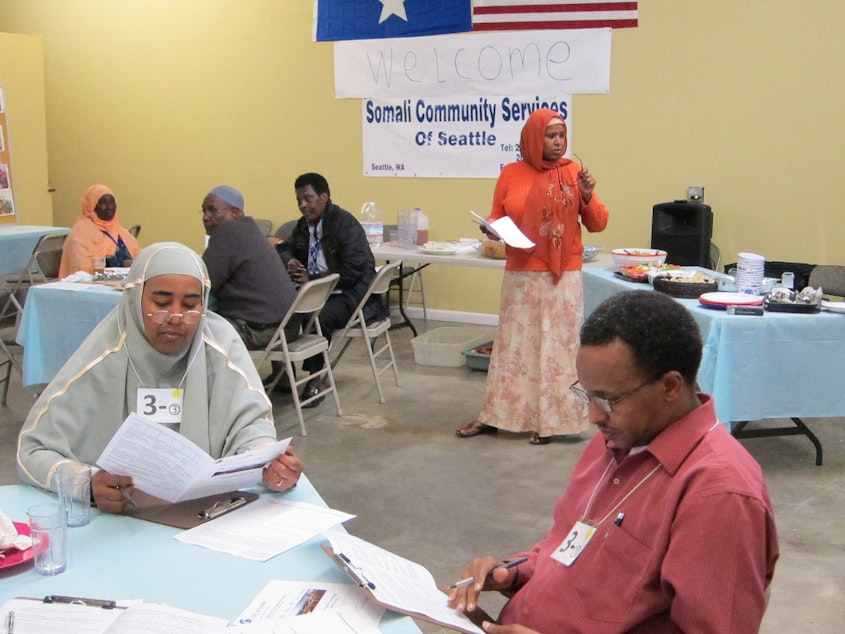Former Prime Minister To Seattle Somalis: Come Home To Build Democracy

We need your help.
That’s the message from Somalia’s former prime minister as he tours the U.S. to meet with Somali diaspora communities. There are about 100,000 Somalis in the U.S., most of them in Minnesota, Ohio and Seattle.
“Some of the people here were influential in Somalia,” former Prime Minister Abdiweli Sheikh Ahmed said in an interview with KUOW this week. “They are the people who have the expertise and the experience – and can make big contributions to the changing of Somalia.”
Ahmed said he and others are pushing for democratic change in Somalia. He said they haven’t had democratic elections in 40 years.
“We are working on first making the elections happen,” he said. “That’s the key.”
And if an election takes place, he wants Somali Americans to vote – even if it’s not for him.
Somalis first came to Seattle in the 1970s, as high school and university students and workers at Boeing.
After a coup during the brutal civil war in 1991, another wave of Somalis moved to Seattle.
Most were resettled in the Seattle area – mostly South Seattle and South King County – by refugee assistance groups.
A generation has since grown up in here in King County, and some of them are considering returning to Somalia, Ahmed said, because they’re excited by the idea of economic opportunities there.
He has met older Somalis who say they want to return home to warmer weather and to relatives and friends. Middle-aged Somalis want to help by bringing their skills as teachers and doctors, he added. “They have benefits from the new country and they want to assist,” Ahmed said.
But others are worried about their safety, he said.
“Some of the people that I’ve met are risk averse, and they don’t want to face the risk,” he said. “‘We will go only when it’s stable, when safety comes back, when we feel no physical or financial risk.’”
But Ahmed said Somalia needs them – Somali Americans shouldn’t wait until others solve the problems, he said.
Produced for the Web by Isolde Raftery.
Correction, 5/20/2015: An earlier version of this story misidentified the former prime minister of Somalia.

